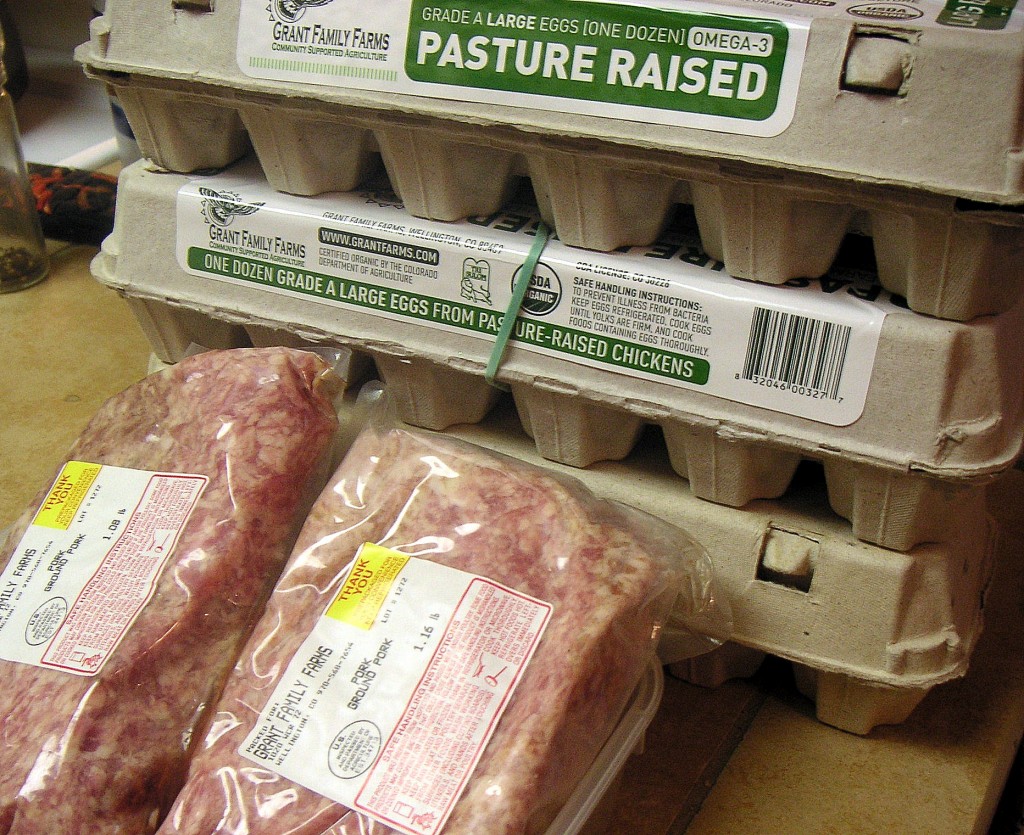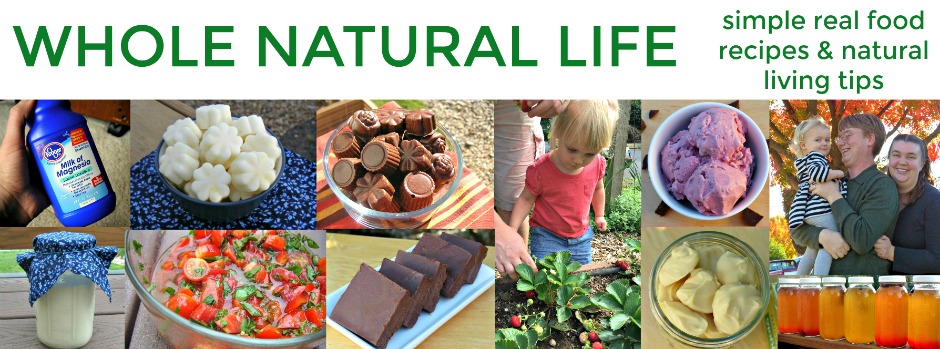 Finding good sources for meat and eggs is a bit tangential to the GAPS protocol. I think it’s important to mention, however, for two reasons. The first is that, since GAPS omits food groups that you may have previously relied on, you’re likely to eat more meat and eggs to compensate. Since these foods will likely comprise a good portion of your nourishment, having secure access to them is important in keeping yourself well-fed.
Finding good sources for meat and eggs is a bit tangential to the GAPS protocol. I think it’s important to mention, however, for two reasons. The first is that, since GAPS omits food groups that you may have previously relied on, you’re likely to eat more meat and eggs to compensate. Since these foods will likely comprise a good portion of your nourishment, having secure access to them is important in keeping yourself well-fed.
Secondly, finding good sources for meat and eggs deserves some attention because GAPS is a healing diet. To help your body detoxify and rebuild you ideally want to be providing it with the highest-quality nutrients. Since meat, eggs and other animal products contain the greatest concentration of nutrients, finding high-quality, pasture-raised products is where I personally choose to put a lot of my time and money.
Before proceeding I need to clarify that the GAPS diet does not require you to eat pastured meats or eggs. The diet does recommend that you stick to organic animal products since they contain fewer toxins than conventional products. However, I have read testimonies from many people on the GAPShelp Yahoo group who are healing using mostly conventional animal products. Pastured or organic animal products are by no means essential to experiencing success with GAPS.
That said, if you can possibly afford pastured meat and/or eggs I would highly recommend that you include these foods as part of your diet. Pastured meats and eggs contain so many more nutrients than their conventional counterparts. Raising pastured animals is also beneficial for the environment and promotes animal health and well-being. For all of these reasons I personally only purchase pastured eggs and meat.
If you’re interested in buying conventional or simply organic animal products, you will likely be able to purchase these products at your local supermarket or natural foods store. Finding pastured animal products, however, usually takes a bit more legwork. I have a couple of suggestions:
- Join your local Weston A. Price Foundation chapter and ask other members where they get their meat and eggs. (I know I’ve suggested this in the past, but I really think it’s a great way to share information with like-minded people. Many chapters have a Yahoo group or the like, so you can join the online conversation without committing to attending meetings or taking on other responsibilities.) This is a great option to find out which farms people have been particularly happy with.
- Use an online farm directory to locate local farms raising pastured animals. Eat Wild and Local Harvest are both good options.
Some farms will offer you the option to buy a large amount of meat at once, such as a quarter of a cow or a dozen chickens, to get a better price per pound. While this can certainly be a positive financial option, if you’re new to pastured meats you may want to start with just a few pounds while deciding how committed you are. This is what I did while I was just trying out the traditional foods lifestyle. A quarter of a grass-fed cow is a big investment so you want to be sure that it’s worth it to you before you put down the money.
You may have noticed that I didn’t mention fish. Wild fish is an excellent source of nutrients and can be eaten liberally while on GAPS. Unfortunately I can’t advise you on finding good sources for fish because I haven’t figured it out for myself yet. Sometimes I buy wild salmon at Costco and various other wild fish at Sunflower Farmers Market, but other than that I haven’t found great options here in Colorado. If you have any recommendations for finding good fish, I hope you’ll share them in the comments.
Are you interested in eating pastured animal products? If already eat them, what benefits are important to you?
STANDARD FTC DISCLOSURE: In order for me to support my blogging activities, I may receive monetary compensation or other types of remuneration for my endorsement, recommendation, testimonial and/or link to any products or services from this blog. Please note, I only ever endorse products that are in alignment with Whole Natural Life’s ideals and I believe would be of value to my readers. Please also note that Whole Natural Life is a participant in the Amazon Services LLC Associates Program, an affiliate advertising program designed to provide a means for sites to earn advertising fees by advertising and linking to amazon.com.




